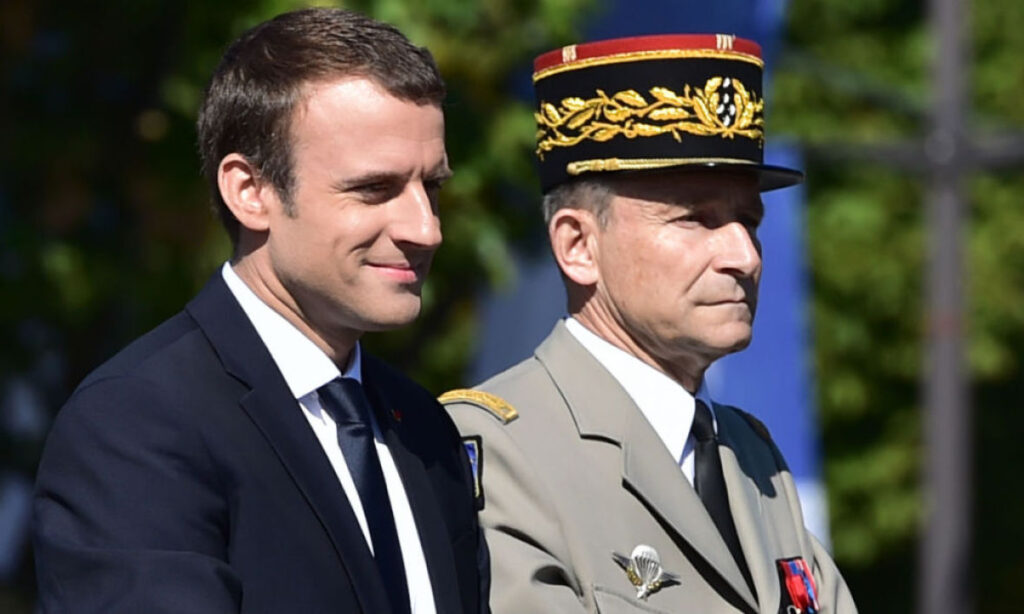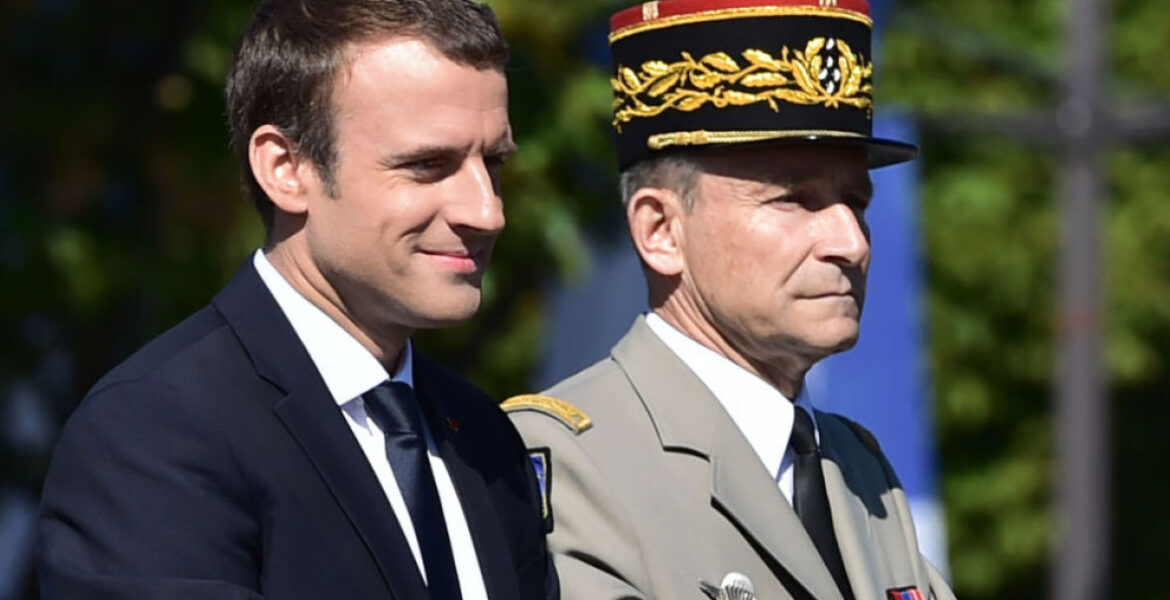
While French and Turkish frigates almost opened fire against each other on June 16, tensions within the Atlantic Alliance are increasing.
Dominique Trinquand, a former French military chief of mission to the UN, spoke with Sputnik France about the future of the alliance, today threatened by both U.S. President Donald Trump and Turkish President Recep Tayyip Erdoğan.
France was keen to show its disagreement with Turkey during the NATO inter-ministerial meeting on June 17 and 18 even though Jens Stoltenberg, Secretary General of NATO, did not wish to discuss the Turkish issue at this meeting. But Florence Parly, Minister of the Armed Forces, imposed it on the agenda.
For several months now, within the alliance, France has voiced its dissatisfaction with the actions of Ankara, which is supposed to be an ally. On April 20, in the columns of Le Monde, French Foreign Minister Jean-Yves Le Drian spoke of what Paris and Ankara disagree on: Syria, Libya, violation of Greek territorial waters, the Cypriot issue. However, recent Turkish military operations in the eastern Mediterranean have led to confrontation.
“We have known complicated moments in the alliance, but we can’t be an ostrich and can’t pretend there isn’t a Turkey problem at NATO. We have to see it, say it and handle it," a French official said days ago.
On May 27, Cirkin, a mysterious freighter usually sailing in the Black Sea, was flying the Tanzanian flag and claimed to be going to the port of Gabès in Tunisia. After carrying out several strange maneuvers, including one to conceal its identification, the Forbin, a French frigate, decided to approach it to conduct an inspection to execute the arms embargo placed against Libya.
Two Turkish frigates accelerated to protect the cargo and prevented the French from carrying out the inspection. The freighter, supposed to deliver medicine to Tunisia, docked in the Libyan port of Misrata to deliver M-60 tanks, Hawk missiles and mercenaries.
A few days later, it was the turn of Courbet, another French ship, this time under NATO command, to try to approach Cirkin. But one of the Turkish frigates who came once more to the rescue of the freighter, activated its fire control radar against the French vessel. In naval jargon, this is called "illumination."
Radar illumination is considered an act of war, because it is the last action before opening of fire.
This incident, which could have led to war, reflects the degraded state of relations between countries that are supposed to be allies.
Attacked by Trump who is supposedly hostile to the alliance as it is today, and in the east by the neo-Ottoman impulses of Erdoğan, the Atlantic alliance is threatened. General Dominique Trinquand, ex-head of the military mission to the UN, spoke with Sputnik France about Turkish adventurism, the state of NATO and the role of France within it.
Sputnik France: Are Europeans forced to deal with Turkey and the blackmail it opposes them? Whether for fear of a migratory wave or to see the country switch to an anti-Western axis.
Dominique Trinquand: It is a position of principle, but we must obviously not give in to this blackmail. However, the situation is extremely complex, since Turkey is part of NATO without respecting its rules. We had proof of this with the incidents of frigates in the eastern Mediterranean recently. Especially since President Erdoğan is a mask of the Muslim Brotherhood. In fact, he is clearly in a position that opposes our western and liberal societies. President Macron made it clear that the Brotherhood ideology could not be reconciled with our vision of society.
Sputnik France: What tools do we have to deal with it?
Dominique Trinquand: This is also extremely difficult. You would have to have the agreement of the Americans to be able to counter Turkey within NATO. Given Donald Trump's electoral concerns at the moment, that seems pretty difficult to me.
The other agreement is inter-European. I note changes in our Italian, Spanish and German allies, who are rather on the same line. On the other hand, for the other countries which are simply waiting for the other countries to react, it will be quite complicated to rally them to the cause of the fight against Turkish expansionism.
In my opinion, the best position is to encourage democracy in Turkey. President Erdoğan is certainly a pseudo-dictator, but he lost Istanbul in the last elections.
Sputnik France: Istanbul is not Turkey.
Dominique Trinquand: I agree, but that does not mean that there cannot be an action which can make it possible to reduce Erdoğan to more realistic things, which are to promote Turkey without arms. The Turkish economic miracle is over and there is a real card to play on it. I would therefore say that, for me, the first weapons in the fight against Erdoğan's expansionism are political and economic.
My fear is that an incident could happen. In the context of NATO, when a stealth frigate with missiles is lighted, it is supposed to fire a missile! It can therefore sink a Turkish boat, and I let you imagine. No one has an interest in getting there, we have to make it clear to Turkey that it cannot continue like this, and we can, by roundabout means (like cyber for example) neutralise weapons like that. The goal is to make Erdoğan understand that his interest is above all the development of his country and not to push his country into war.
There is another interesting point to raise. No one has heard of the incident between the frigates in Turkey where information is very controlled. The Turkish population is completely unaware of the adventurism of their President. And if an incident were to happen, it would be exploited by Erdoğan as an assault on Turkey, regardless of the real context.
Sputnik France: Emmanuel Macron recently denounced NATO as "brain dead" and the lack of political will of its members to react to Turkish provocations. Do you share his observation?
Dominique Trinquand: It's obvious. What is happening is that 80% of NATO does not make a decision until the Americans have taken theirs. The only ones who are a bit of the preventers of this wait-and-see attitude were the French. It was, moreover, one of the objectives when France returned to NATO's integrated command in 2007: to get another voice heard. But we have a hard time with other Europeans on this subject.
Sputnik France: We see that France protests after the last Turkish actions, but does it have enough influence to change something?
Dominique Trinquand: No, with Europeans and Americans, we don't have it today. France has always been considered the country capable of saying no to the Americans, as in 2003, which means that we have a voice that is heard. But the counterpart is that everyone thinks that we want to create a European Defense against NATO, which is not the case at all.
Sputnik France: Does Erdoğan's Turkey and the “neo-Ottoman” ideological current it represents has a future in NATO?
Dominique Trinquand: No. For me Erdoğan's Turkey is the Muslim Brotherhood. The final idea of the Muslim Brotherhood is that religion and the state are one. In NATO, this ideology is unthinkable. Even if democracies within NATO have state religions, there should be no confusion of the two.

